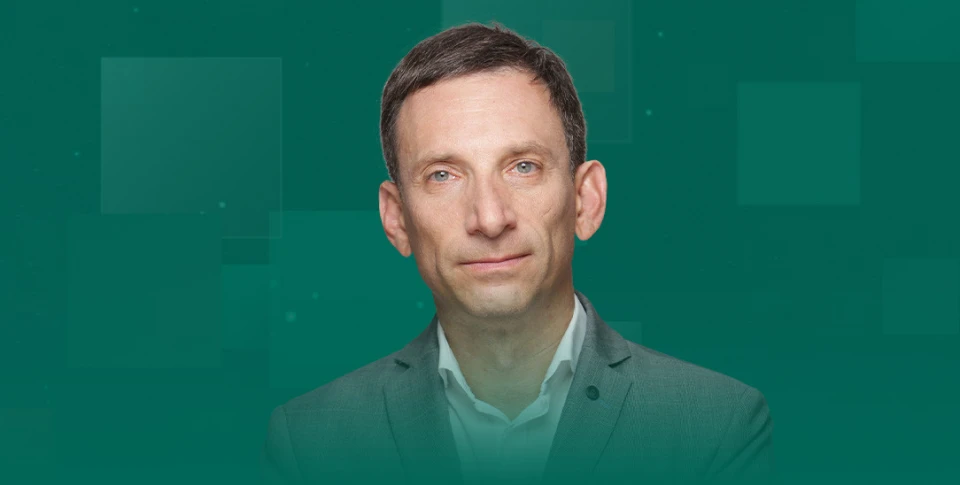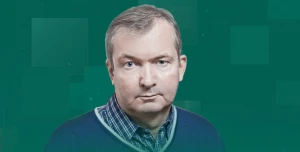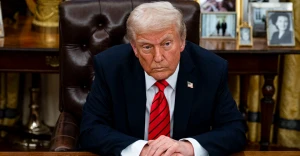
Why on earth would Putin agree to Scholz's peace plan?
The Italian newspaper La Repubblica reveals the first details of the so-called peace plan being crafted by German Chancellor Olaf Scholz
According to the publication, Scholz’s plan to end the war in Ukraine isn’t just about halting the conflict — it’s also a crucial political move for his own survival. After the crushing defeat of the Social Democrats in recent elections in Saxony and Thuringia, Scholz fears the collapse of his governing coalition or even the possibility of early parliamentary elections due to rising public pressure. Let's not forget about the scheduled 2025 Bundestag elections either.
If Scholz manages to become the "Chancellor of Peace," as La Repubblica suggests, it’ll likely secure his standing as a political leader. But this isn’t just about Scholz’s ambitions. The real question is what kind of peace deal would actually end Russia’s war on Ukraine.
The outlet compares this plan to a new version of the Minsk agreements, suggesting it would involve a ceasefire between the two warring sides. However, Ukraine would have to accept that some of its sovereign territory will remain under Russian control.
There’s no mention of how Western nations, who would have to endorse Scholz’s plan, would provide security guarantees for Ukraine — or how they plan to prevent the Russian-Ukrainian war from reigniting shortly after. After all, this major conflict erupted under the pretense that Ukraine wasn’t sticking to the Minsk agreements. In reality, Russia’s goal was the destruction of Ukrainian statehood or the installation of a puppet government in Kyiv, willing to bow to Moscow’s demands.
There’s another key issue that always stands out to me when we talk about any peace plans. According to La Repubblica, Scholz is pushing Ukraine to accept a peace deal at any cost. Sure, the German chancellor, especially if he gets support from other Western leaders, has plenty of ways to pressure President Zelenskyy and Ukraine’s political leadership. Without real Western support, the Ukrainian people would eventually be forced to make concessions to Russia.
But here’s the bigger question — why on earth would Putin even agree to Scholz’s peace plan? His spokesperson, Dmitry Peskov, has already said there’s no chance for a peaceful solution to the situation after Russia’s invasion of Ukraine. Even though Russia’s leadership only heard about Scholz’s plan through media reports, they claim they’re open to any proposals.
Of course, that’s all just talk. In reality, as long as Putin believes his troops are advancing on Ukrainian land and can capture more of it, he won’t stop. As long as he thinks missile and drone strikes will turn Ukraine into a wasteland, pushing more Ukrainians to flee, he’ll keep going. As long as he’s convinced he can win a political, social, and demographic battle against his hated neighbor — even if Russia doesn’t control the whole country — he has no reason to call it quits.
I’ve said it many times before: the only real chance to stop the fighting between Russia and Ukraine isn’t through peace plans from Scholz or any other politician. And it isn't through accepting that parts of Ukraine's land will stay under Russian control indefinitely — territory that Russia now considers its own, like it did with Crimea, and the regions of Donetsk, Luhansk, Kherson, and Zaporizhzhia, all taken by Russian forces.
The fundamental issue is that Russia has no intention of limiting Vladimir Putin’s ambitions to these regions. Putin didn’t initiate this war just for these territories. Supported by his countrymen, the Russian leader is chasing a far bigger goal — conquering all of Ukraine and expelling any opposition beyond its borders. This is his version of restoring Russia’s geopolitical standing, envisioning it in the old Soviet Union borders.
And Olaf Scholz, like Donald Trump or anyone else, can’t offer Putin any deal that would satisfy him. Only when Putin realizes his resources are dwindling — when it’s clear he won’t advance even a kilometer on Ukrainian soil, not in months but in years — only then, I emphasize, years, will we see a shift. It’s only when Putin understands that Ukrainians will survive and remain in their homeland, even under the harshest Russian assaults, that the Kremlin might entertain the idea — not of stopping, I repeat, not stopping, but pausing the military offensive on the Ukrainian front. Add to this the prospect of Ukraine gaining control over Russian territory, with the capability to target Russian military sites — if, of course, the West agrees to provide the weapons and intelligence needed to strike deep into Russian soil.
That’s when the groundwork for preliminary talks might emerge, and perhaps by the 2020s or 2030s, we’ll be looking at a real possibility of halting, or maybe even ending, Russia’s war on Ukraine. But until that point, there’s no realistic end in sight.
Scholz and every other Western leader know exactly what’s needed to make this happen: provide Ukraine with new weapons, allow Ukraine to strike targets within Russia, and supply both the arms and the coordinates. Endorse Ukraine’s military operations on Russian soil and give Ukrainians the means to survive amidst the infrastructure damage caused by Russian attacks. This means pouring more and more billions of dollars and euros into a war Russia continues to wage against Ukraine year after year. This is the only hypothetical, theoretical chance — one that could become real — when Putin finally grasps that nothing is going his way and that it’s only him facing problems, not the West, not Ukraine. But offering him new military supplies and plans will only push the Russian president to keep going, convincing him that his strategy is working — that the West is growing tired of Ukraine, and Ukrainians are wearing down from the endless war. All he has to do is wait, and soon enough, he’ll take all of Ukraine, restoring the Russian Empire within Soviet borders.
About the author: Vitaly Portnykov, journalist, Shevchenko National Prize laureate
The editors do not always share the opinions expressed by the blog authors.
- News












































